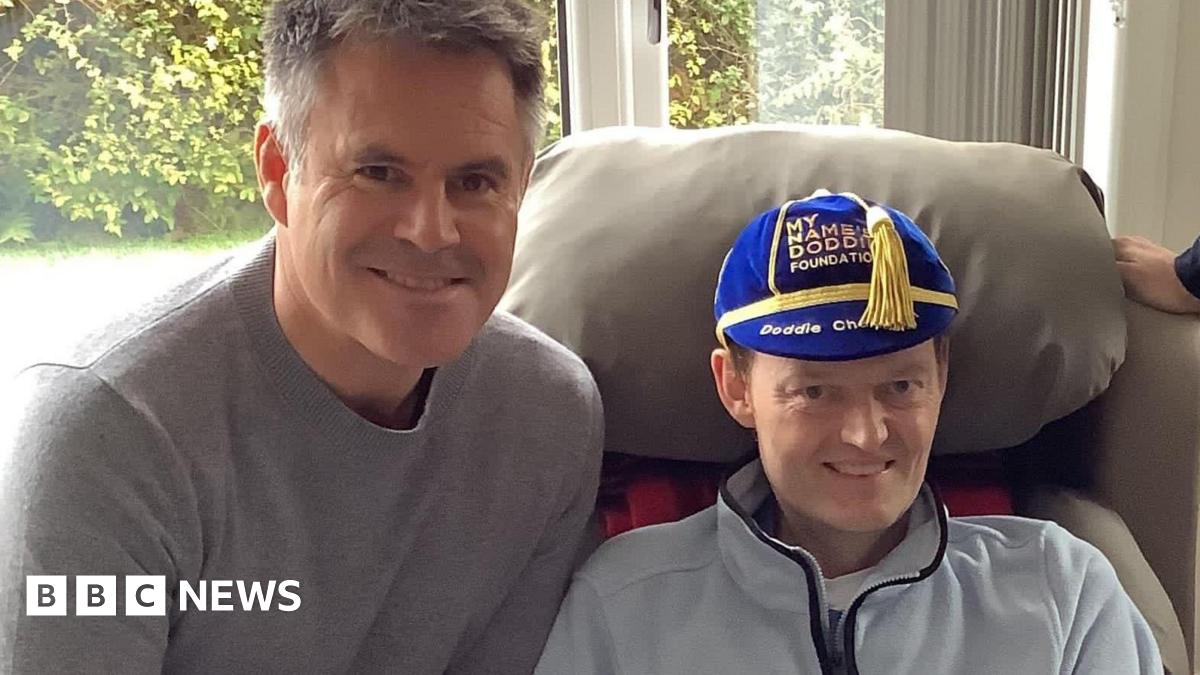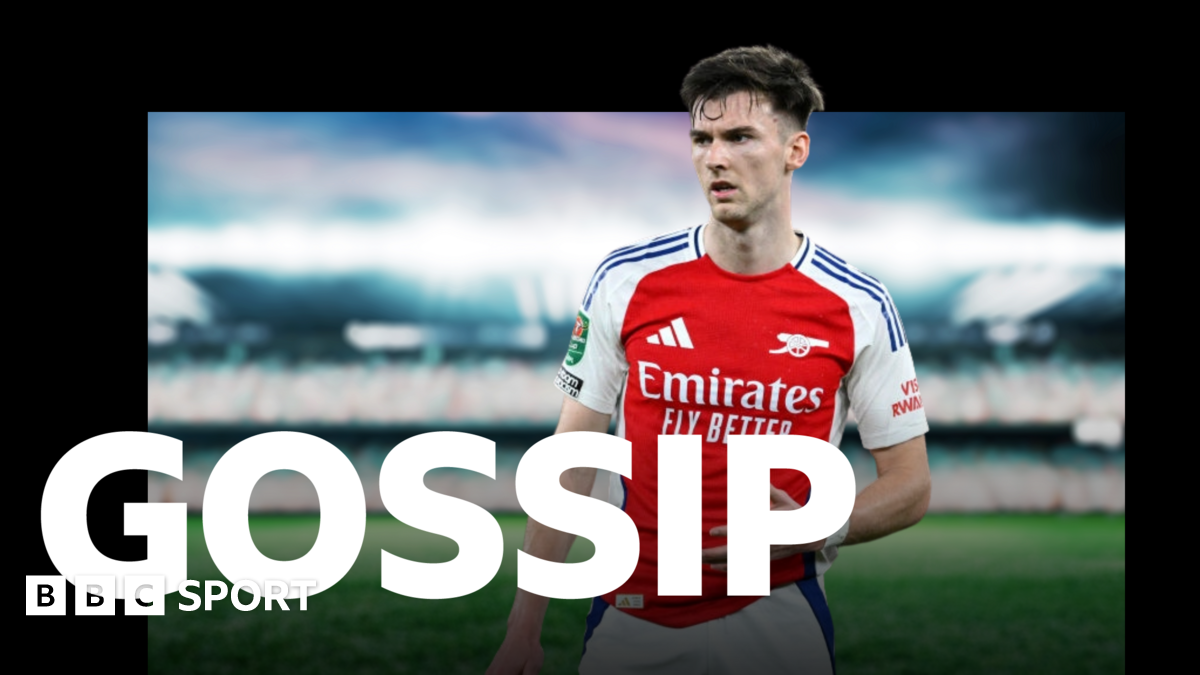Bussiness
Cuts statement sets tone for tough financial choices to come
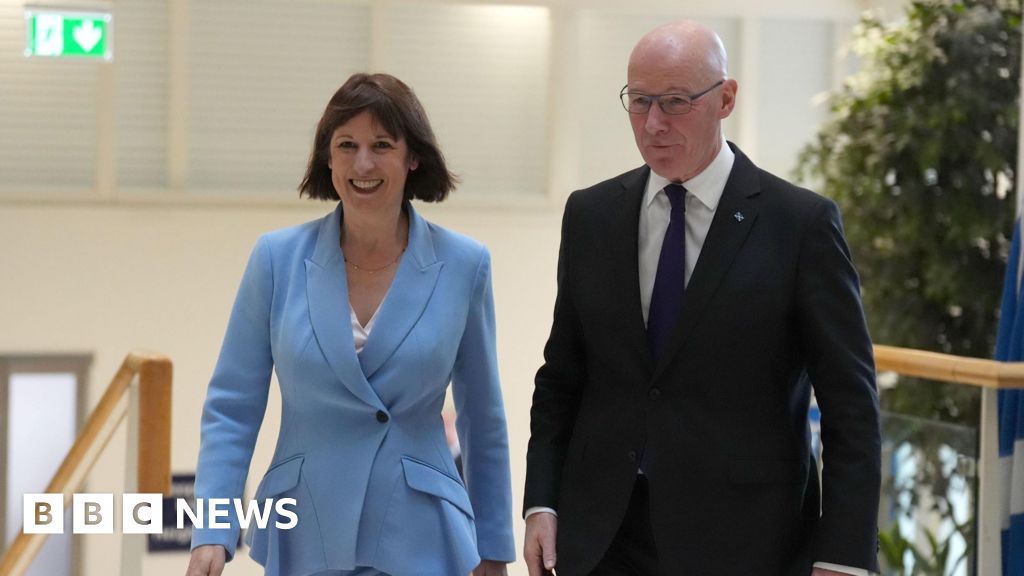
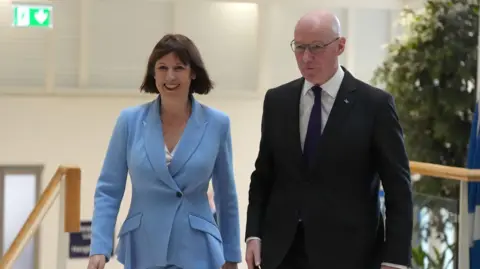 PA Media
PA MediaIt’s usually the day the first minister sets out their priorities for the parliamentary year ahead – a political set-piece that provides the opportunity to layout the government’s vision (and a particularly important moment for a leader new to the job, as is the case for John Swinney).
But the Programme for Government has been delayed until tomorrow, giving way instead to a statement from the Finance Secretary Shona Robison, where she detailed £500m of cuts.
For the first minister, it’s a far from ideal start for he and his cabinet as MSPs return from their summer break.
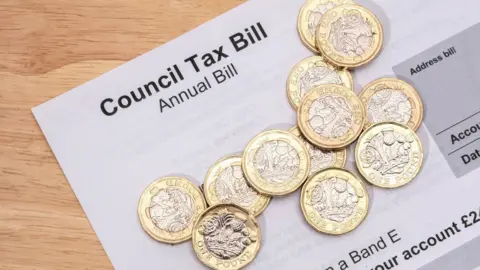 Getty Images
Getty ImagesAnd it sets the tone for what is to come in the weeks and months ahead – tough financial choices at both Westminster and Holyrood that will inevitably impact on public services.
Today’s cuts are about saving money in this financial year.
A combination of factors have squeezed the budget for 2024/25, leading to Ms Robison imposing spending controls across government departments, and looking for programmes and projects that can be axed or delayed.
The Scottish government points to inflation, ongoing negotiations over public sector pay deals and uncertainty over its funding until the new Labour government at Westminster presents its budget at the end of October.
The Scottish Fiscal Commission – Scotland’s financial forecaster – says decisions taken by Scottish ministers have played a role. Those include the way it has handled previous pay settlements, the council tax freeze and social security payments.
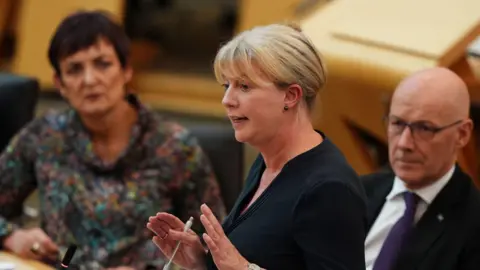 PA Media
PA MediaIt’s the pay deals that are really putting the pressure on here.
Public sector wages cost around £25bn last year – more than half the total day-to-day budget.
Shona Robison has admitted that bill will rise by an extra £0.8bn this year. And remember, pay increases are a recurring cost that’ll impact on future budgets too.
Negotiations are still taking place with council workers, teachers and NHS staff – so the final wage bill, and exactly how it will be paid for, is still unknown.
That is a political choice for Scottish ministers. In the past, they’ve chosen to fund more generous pay offers than those made to workers south of the border. And this year, they say they’re having to find more money to keep up with inflation and try to avoid strikes.
The government’s opponents say the government failed to plan for this – and now it has to be paid for somehow.
Environmental anger
Ms Robison has found extra cash from various sources, including reinstating peak rail fares, cutting money from the sustainable and active travel and nature restoration budgets, and by raiding up to £460m from ScotWind revenues – money that was originally earmarked for investment in the green economy.
Given ministers’ top priorities include tackling the climate emergency, those decisions will anger environmental campaigners.
Their former partners in government, the Scottish Greens, described the move as a “disaster for our climate”.
And it will be politically awkward for Mr Swinney to emphasise his commitment to net zero when he delivers his programme for government at Holyrood tomorrow.
Indeed, his plans for the year ahead could be somewhat dampened by today’s announcement of significant spending cuts.
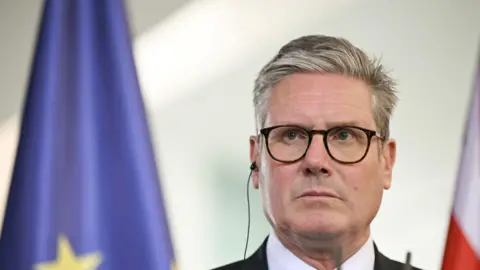 PA Media
PA MediaThere’s a longer term debate now brewing about public spending choices in general – the first minister has ruled out cutting universal benefits such as free prescriptions and concessionary travel. But some are now questioning whether those – and increased spending on social security – can be afforded.
There’s no money in the coffers for Mr Swinney to make bold investment promises – instead the focus is likely to be on growing the economy to generate cash for public spending.
That is a strategy also being deployed at Westminster, with Sir Keir Starmer warning “things will get worse before they get better“.
The UK Labour government is banking on economic growth to transform the country’s financial fortunes in the years ahead.
Both governments agree on that – and have been keen to establish better lines of communication than existed under the Tories’ rule.
Certainly by all accounts the relationship between the Scottish and UK governments has improved.
But financial pressures are proving to be the political pinch point.
Scottish ministers have repeatedly pointed the finger at Labour, blaming UK ministers for failing to confirm whether there’ll be extra funding for pay deals, and claiming it is imposing further austerity after promising not to during the general election campaign.
Labour – along with the Conservatives – say this is a mess of the Scottish Government’s own making.
With budgets due to be set at both Westminster and Holyrood on 30 October and 4 December respectively, expect the row over public spending – and the political choices that come with it – to continue in the months to come.





